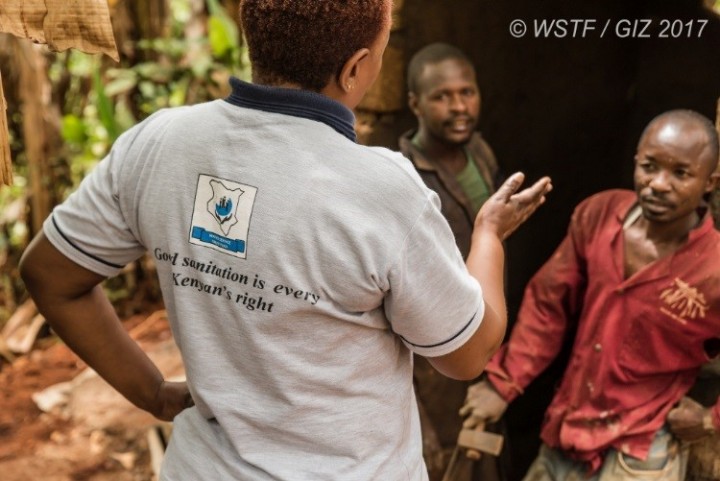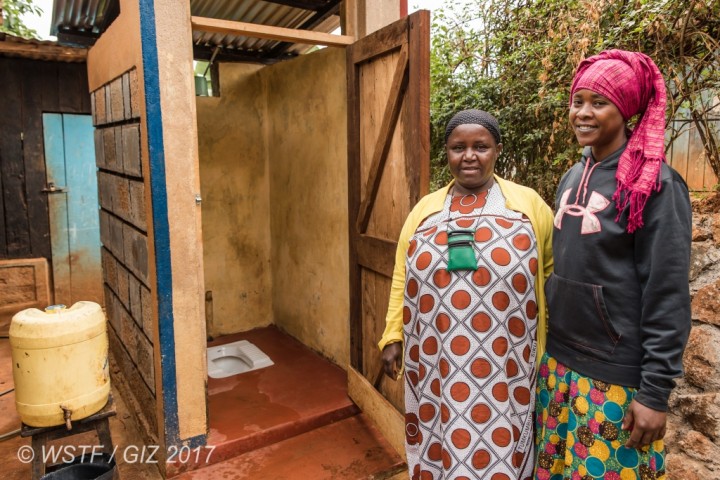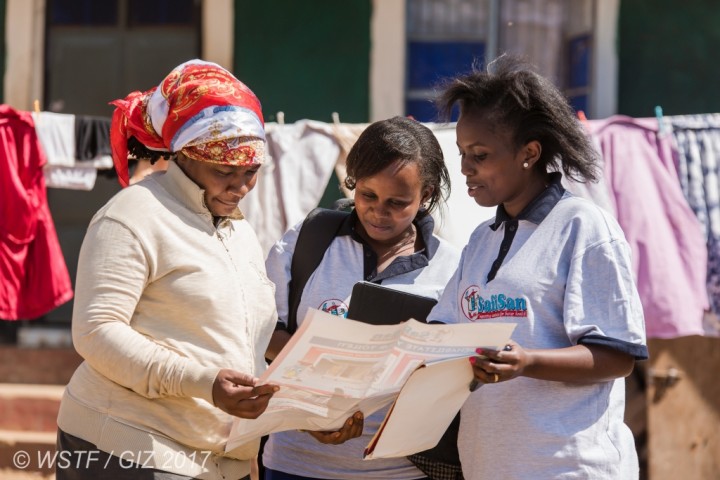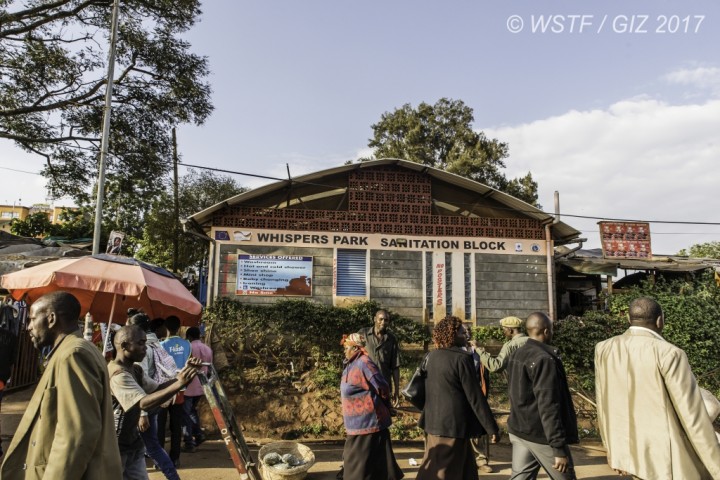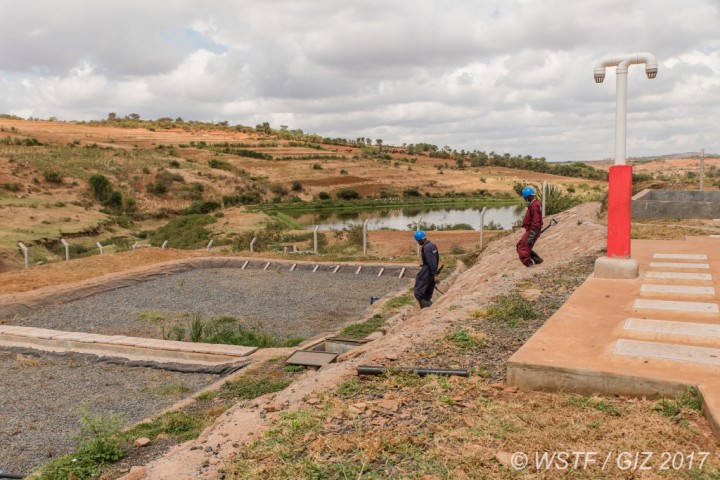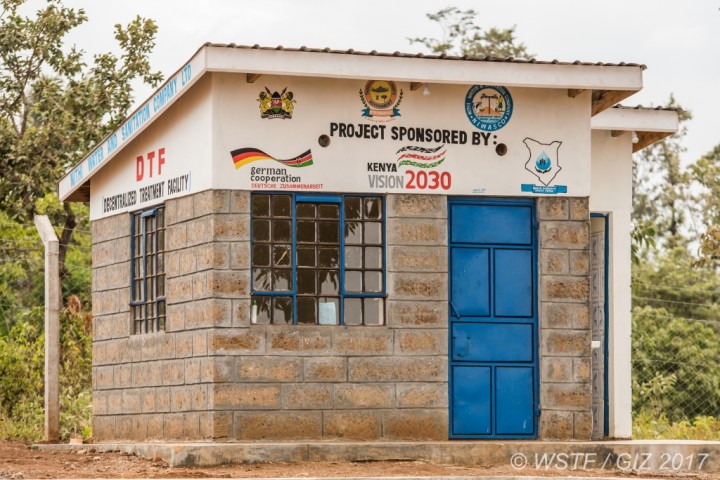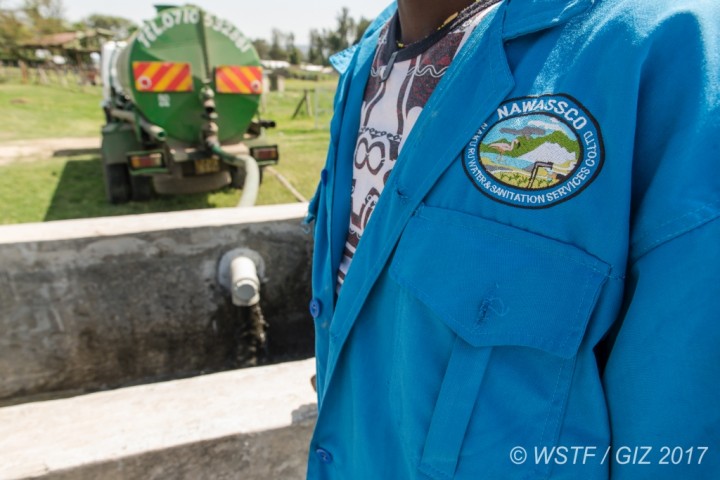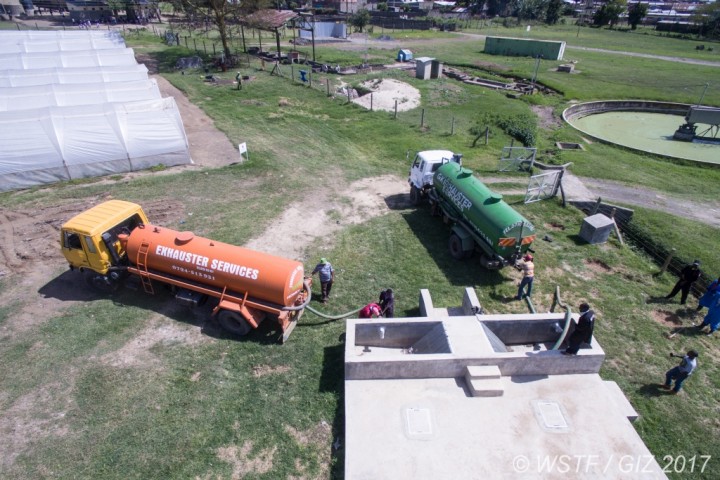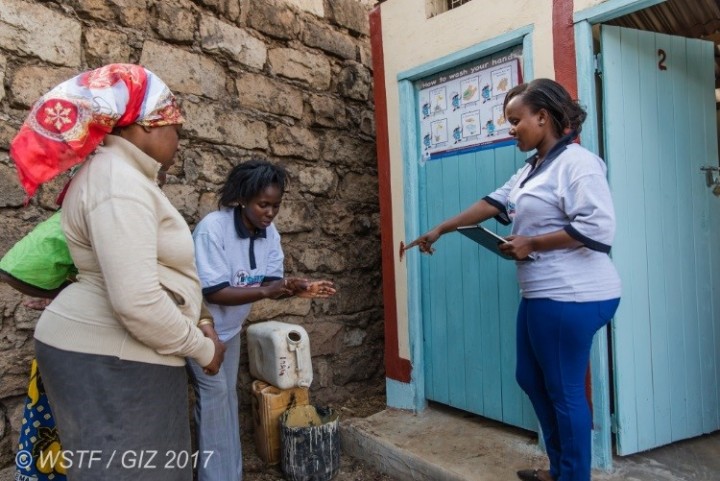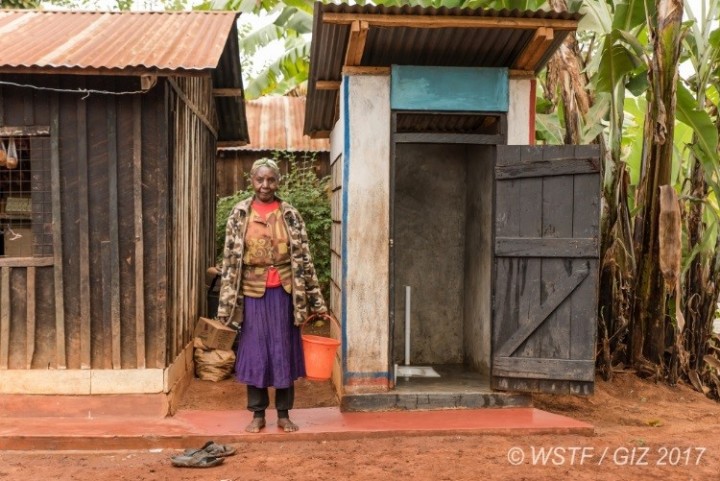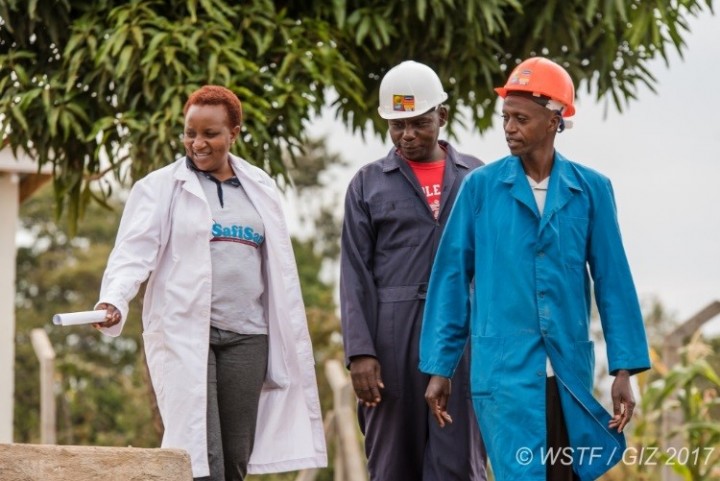Sanitation activities of GIZ in Kenya
2003 - 2018 • Deutsche Gesellschaft für Internationale Zusammenarbeit (GIZ) GmbH
Purpose
GIZ Water Sector Reform Programme (WSRP)
Activities
According to the IMPACT Report No 10 (2016/17) of the Water Services Regulatory Board (Wasreb), the urban water coverage is 55% and sewerage is 15%. Majority of urban population are using onsite sanitation. However, most of these are not linked to a sanitation chain for safe disposal or reuse of waste. The Ministry of Health reports that about 50% of the urban population using onsite sanitation facilities do not have access to improved basic sanitation. In addition about 14% of Kenyans (6.5 million) do not have access to any kind of toilet and practice open defecation. The Ministry of Water and Sanitation (MoWS) is responsible for sanitation management (collection, transportation, treatment, and disposal/reuse). The GIZ WSRP has been supporting the MoWS, Wasreb and Water Sector Trust Fund (WSTF) to support utilities to take up this mandate of sanitation management in urban areas.
The Water Sector Reform Programme in Kenya is supporting the Wasreb, the WSTF, the Water Resource Management Authority (WRA), the Water Service Providers Association (WASPA) and selected water utilities. The areas of support are:
1.Water Sector Reforms (Policy, legal framework)
2.Regulation and Provision of water services(water supply and sanitation in urban areas)
3. Pro-poor financing of water and sanitation services through WSTF
4. Integrated water resources management and environmental protection
The Bill and Melinda Gates Foundation was co-financing basic sanitation measures for the urban poor (2014-2018) with KfW and GIZ through WSTF.
Images
Countries of activity
Location of main activity
Objectives
The Water Sector Reform Programme, Kenya is a bilateral cooperation of Kenyan and German Government. It is implemented by MoWS in Kenya with support from GIZ on behalf of the German Government. It aims at achieving a substantial increase and improved access (scaling-up) to sustainable supply of safe and affordable water and improved basic sanitation with focus on the urban poor using a multi-level approach. The water sector in Kenya adopted human rights approach since 2007 and this was also anchored in the Constitution of Kenya, 2010. Access for about 1.2 million people to safe and affordable water (fulfilling human rights) and 122,000 to improved basic sanitation has been achieved by 2017 jointly with financial cooperation of the German Government (through the German Development Bank - KfW) and the Bill & Melinda Gates Foundation. The investments have been mainly channeled through the Kenyan Water Sector Trust Fund (WSTF) by financing low cost technologies such as water kiosk, yard taps, public toilets, plot-level sanitation and decentralized treatment facilities implemented by the utilities at County level.
The major GIZ's activities include:
- Support to the MoWS in the development of the policy, the legal framework and the strategies for the water sector,
- Support to Wasreb in strengthening the regulatory framework for water and sanitation including strong pro-poor focus. This support includes the improvement of information system for monitoring, evaluation and reporting (Water Regulation Information System).
- Support to WSTF: Development of a scaling-up concept for improving access to household sanitation in low-income urban areas. The concept covers the entire sanitation chain. - Support to WSTF in building the capacity of the Water Service Providers (utilities) to provide pro-poor water and sanitation services.
- Improvement of baseline data and information system for all urban low-income areas of Kenya (MajiData), using an online database (www.majidata.go.ke).
- Support to Integrated Water Resources Management, which is adversely affected by poor sanitation
Further information
The programme is supporting the MoWS to enhance low cost appropriate technologies in order to achieve the SDG No 6 objectives and universal access by 2030 by the sector. This focuses on providing basic services to the underserved population. The water sector in Kenya cannot achieve universal access to improved basic sanitation using sewerage services or to safe drinking water using household connections only.
Videos
UBSUP programme: Upscaling Basic Sanitation for the Urban Poor in Kenya
Contact information
Dirk Schaefer
Login to see the e-mail-adress of the contact person.
James Kiptanui Ronoh
Login to see the e-mail-adress of the contact person.
Filter tags
Cities German government Market development Peri-urban Political processes and institutional aspects Product design and engineering Sub-Saharan Africa Technology comparisons Urban (entire city)
Links
Deutsche Gesellschaft für Internationale Zusammenarbeit (GIZ) GmbH
Eschborn
Germany
Uploaded by:
SuSanA secretariat

